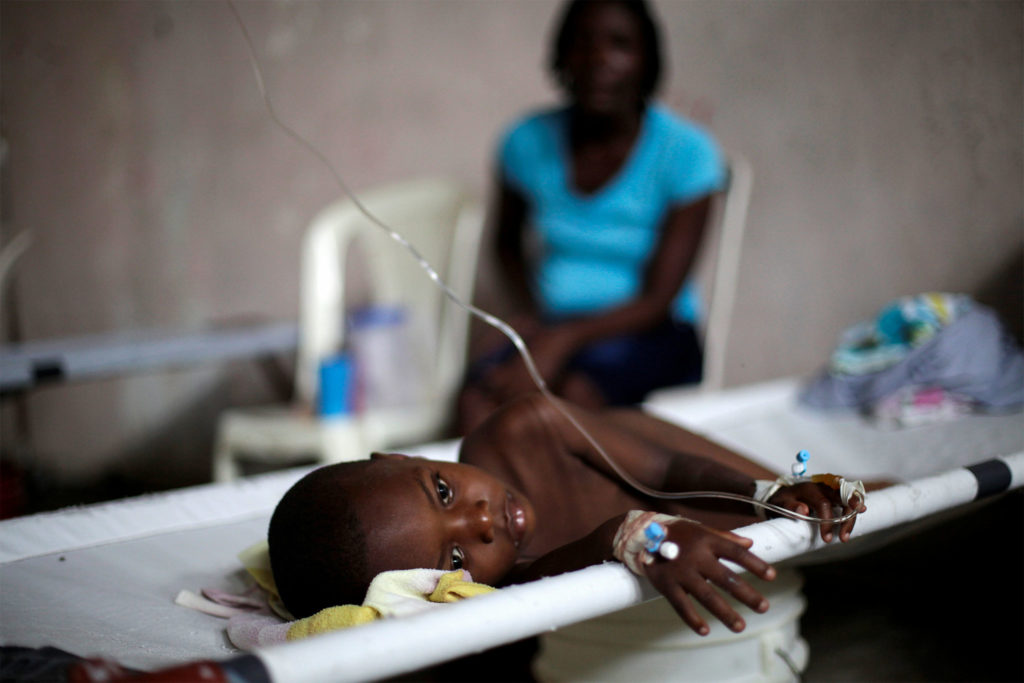A new report has stressed that poor quality health services are holding back progress on improving health in countries
Poor quality health services are holding back progress on improving health in countries at all income levels, according to a new joint report by the OECD, World Health Organization (WHO) and the World Bank.
Today, inaccurate diagnosis, medication errors, inappropriate or unnecessary treatment, inadequate or unsafe clinical facilities or practices, or providers who lack adequate training and expertise prevail in all countries.
The situation is worst in low and middle-income countries including Nigeria where 10 percent of hospitalized patients can expect to acquire an infection during their stay, as compared to seven percent in high income countries.
This is despite hospital acquired infections being easily avoided through better hygiene, improved infection control practices and appropriate use of antimicrobials.. At the same time, one in ten patients is harmed during medical treatment in high income countries.
These are just some of the highlights from Delivering Quality Health Services – a Global Imperative for Universal Health Coverage. The report also highlights that sickness associated with poor quality health care imposes additional expenditure on families and health systems.
There has been some progress in improving quality, for example in survival rates for cancer and cardiovascular disease. Even so, the broader economic and social costs of poor quality care, including long-term disability, impairment and lost productivity, are estimated to amount to trillions of dollars each year.
“At WHO we are committed to ensuring that people everywhere can obtain health services when and where they need them,” said WHO Director-General Dr Tedros Adhanom Ghebreyesus. “We are equally committed to ensuring that those services are good quality. Quite honestly, there can be no universal health coverage without quality care.”
“Without quality health services, universal health coverage will remain an empty promise,” said OECD Secretary-General Ángel Gurría. “The economic and social benefits are clear and we need to see a much stronger focus on investing in and improving quality to create trust in health services and give everyone access to high-quality, people-centred health services.”
“Good health is the foundation of a country’s human capital, and no country can afford low-quality or unsafe healthcare,” World Bank Group President Jim Yong Kim said. “Low-quality care disproportionately impacts the poor, which is not only morally reprehensible, it is economically unsustainable for families and entire countries.”
Other key findings in the report paint a picture of quality issues in healthcare around the world:
- Health care workers in seven low- and middle-income African countries were only able to make accurate diagnoses one third to three quarters of the time, and clinical guidelines for common conditions were followed less than 45 percent of the time on average.
- Research in eight high-mortality countries in the Caribbean and Africa found that effective, quality maternal and child health services are far less prevalent than suggested by just looking at access to services. For example, just 28 percent of antenatal care, 26 percent of family planning services and 21 percent of sick-child care across these countries qualified as ‘effective.’
- Around 15 percent of hospital expenditure in high-income countries is due to mistakes in care or patients being infected while in hospitals.
The three organisations outline the steps governments, health services and their workers, together with citizens and patients, urgently need to take to improve health care quality. Governments should lead the way with strong national health care quality policies and strategies. Health systems should focus on competent care and user experience to ensure confidence in the system. Citizens should be empowered and informed to actively engage in health care decisions and in designing new models of care to meet the needs of their local communities. Health care workers should see patients as partners and commit themselves to providing and using data to demonstrate the effectiveness and safety of health care.
